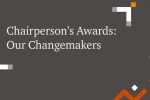99% of CEOs in India believe India’s economic growth will improve: PwC Annual Global CEO Survey - India highlights
17 January, 2022
98% of CEOs are confident about their own company’s revenue growth prospects in the same time period
- 94% of India CEOs believe that global economic growth will improve over the next 12 months, as against 77% of global CEOs.
- 89% of India CEOs are concerned about health risks, while 77% are worried about geopolitical conflict and cyber risks.
- 78% of India CEOs include automation and digitisation goals in their company’s long-term corporate strategy, as against 54% of global CEOs.
- 81% and 75% of India CEOs, as against 71% and 62% of global CEOs, include customer satisfaction and employee engagement metrics respectively in their company’s long-term corporate strategy.
- 27% of India companies have made a net-zero commitment, as against 22% of global companies.
New Delhi, 17 January 2022 – Despite a variety of headwinds, most notably related to the ongoing COVID pandemic, CEOs in India are significantly optimistic about the prospects for a stronger economy in the coming year. 99% of CEOs in India believe India’s economic growth will improve over the next 12 months, with 94% of India CEOs being optimistic about global economic growth improving over the next 12 months, as against 77% of global CEOs. When it comes to the revenue prospects of their own companies, 98% of CEOs are confident about growth in the same time period/next 12 months.
These are India highlights from PwC’s 25th Annual Global CEO Survey, which polled 4,446 CEOs in 89 countries and territories between October–November, 2021; the India highlights include insights from 77 CEOs from India.
While for the most part, CEOs globally are at least as optimistic as they were last year about the prospects for economic growth in 2022, the optimism of India CEOs – up from 88% last year – stands out at 94%.
Sanjeev Krishan, Chairperson, PwC in India said: “While Omicron has cast a shadow and CEOs are focused on the health and safety of their employees at the moment, CEO confidence and optimism over the past one year is testimony to the resilience of Indian companies. The vigour with which most Indian business leaders took the challenges brought in by the pandemic head on, coupled with the will to emerge stronger in the face of adversity, has led to sustained growth for businesses in India. Perhaps owing to the futuristic groundwork done during the difficult times, 97% of India CEOs are confident about their own company’s prospects for revenue growth not only in the near term but also over the next three years.”
Threat landscape
While there is optimism, concerns about some clear threats for India’s CEOs continue to remain. Last year, 70% of India CEOs viewed the pandemic as a top threat to growth, while 62% considered cyber threats as an impediment to growth. This year:
- 15% of CEOs in India are apprehensive about cyber risks hindering their company’s ability to raise capital. India CEOs also agree that cyber risks could cause severe revenue disruptions, with 64% of respondents fearing a breach could hinder sales of products or services. Besides business disruptions, 47% of chief executives believe cyber threats could impede their ability to develop products and services.
- 89% of India CEOs are concerned about health risks – 9% higher than their global counterparts. This is perhaps an indication that business leaders would like to exercise caution when it comes to making early investment and business decisions, despite vaccination drives worldwide. Concern over the ability to attract and retain talent (61%) is also strongly linked in CEOs’ minds with health risks.
- Adding to the continued challenge of the mutating COVID-19 virus is the rising geopolitical conflict which has led to global disruptions in commerce.
Sanjeev added: “After a challenging year, business leaders are under pressure to deliver top-line results. It will require them to take proactive steps to mitigate current and future risks – be they around technology, cyber security, talent or health. Focusing on long-term challenges and issues around climate change and social inequality also becomes extremely crucial given the highly uncertain, volatile environment we are in and will define what sort of world we live in and hand down to the next generation.”
Long-term strategy for growth
Despite rising interest in ESG, strategy is still primarily driven by business metrics, both globally and in India. Most CEOs have goals related to nonfinancial outcomes such as customer satisfaction, employee engagement, and automation or digitisation included in their long-term strategy. Less well-represented, in strategies and compensation, are targets related to workforce gender representation and climate mitigation and adaptation.
- 81% and 75% of India CEOs, as against 71% and 62% of global CEOs, include customer satisfaction and employee engagement metrics respectively in their company’s long-term corporate strategy.
- 78% of India CEOs, as against 54% of global CEOs, include automation and digitisation goals in their company’s long-term corporate strategy.
- 17% and 14% of India CEOs, as against 11% and 13% of global CEOs, factor in gender representation and greenhouse gas emissions respectively in their company’s annual bonus or long-term incentive plans.
The diverse paths to net zero
It is heartening to note that of the India companies that participated in the survey, 27% already have a net-zero commitment (22% globally) in place, 40% are in the process of developing and articulating their commitments (29% globally), and only 30% have neither made nor are in the process of making any net-zero commitment (globally 44%).
At the sector level, energy, utilities and resources are the most represented ones among those that have made net-zero commitments. This reinforces the fact that high-emitting (and hard-to-abate) industries are often front and centre when it comes to climate action, placing them in the complex but critical role of problem-contributor and problem-solver.
Recalibrating skills
Our survey results point to capability-building priorities related to cyber security, the cultivation of trust, and the measurement and management of decarbonisation. When leaders are stretching to reimagine their organisations’ place in the world and juggling an ever-broader array of competing priorities, growth mindsets, empathy and a willingness to embrace debate and dissent become more important than ever. This is interlinked with the need to adopt a democratic yet firm approach to drive reskilling and upskilling as priority programmes to ensure stronger corporate culture, effective governance, transparent and integral disclosure, greater innovation, and higher workforce productivity.
Looking forward – priorities for the CEO
The opportunity – and the challenge – is clear: Progress on society’s toughest problems will be limited without bold action from CEOs stewarding critical corporate resources. Near-term financial imperatives remain mission critical, even as broader societal needs demand more mindshare. Moreover, to drive the growth agenda, build trust and deliver sustained outcomes driven by human-led tech enablement, organisations have to substantially strengthen the following supply chain capabilities to ensure availability of products for evolving consumer needs:
- Build segmented supply chains to service the shift in consumer expectations across new channel models such as direct to consumer and ecommerce.
- Build digital supply chains that would enable organisations to prioritise for differential service expectations of consumers and across channels. This would also build visibility across supply chains and help design supply chains that are more responsive to volatile demands.
- Work on strong digital collaboration models with ecosystem players leveraging emerging technologies to counter disruptions through visibility, transparency and simulation capabilities at scale and speed.
- Diversify supply chain risks by a calibrated shift from global to diversified global to localised models for strategic requirements.
- Reimagine supply chains for ESG considerations across value chains, including ecosystem players (suppliers, distributors, technology players) – to realise net-zero targets by reducing, reusing, recycling and removing carbon, thereby enhancing the positive environmental and societal impacts through effective collaborations.
Sanjeev concluded: “We have seen business leaders navigate the tide of uncertainty and lead the way to drive not only economic growth but also societal change, through the past 25 years of our Global CEO Survey. The role of business leaders as change makers will increasingly come to the fore, and leaders must ensure that their efforts create lasting value while also building trust with the communities and stakeholders they serve. Effective collaboration between all stakeholders – organisations, individuals and governments – can meaningfully enhance not only their own prospects but also the prosperity and vitality of society as a whole.”
Ends
About the survey
PwC surveyed 4,446 CEOs in 89 countries and territories (including 77 from India) in October and November of 2021. The global and regional figures in this report are weighted proportionally to country or regional nominal GDP to ensure that CEOs’ views are representative across all major regions. The industry- and country-level figures are based on unweighted data from the full sample of 4,446 CEOs. Further details by region, country and industry are available on request. Ninety-four percent of the interviews were conducted online and 6% by post, by telephone or face-to-face. All quantitative interviews were conducted on a confidential basis. We also conducted in-depth interviews with CEOs from five global regions (North America, Latin America, Western Europe, Asia-Pacific and Africa). Some of these interviews are quoted in this report; in most cases, the full interviews can be found at strategy-business.com/mindoftheceo.
About PwC
At PwC, our purpose is to build trust in society and solve important problems. We’re a network of firms in 156 countries with over 295,000 people who are committed to delivering quality in assurance, advisory and tax services. Find out more and tell us what matters to you by visiting us at www.pwc.com.
PwC refers to the PwC network and/or one or more of its member firms, each of which is a separate legal entity. Please see www.pwc.com/structure for further details.
© 2022 PwC. All rights reserved.
Contact us

















